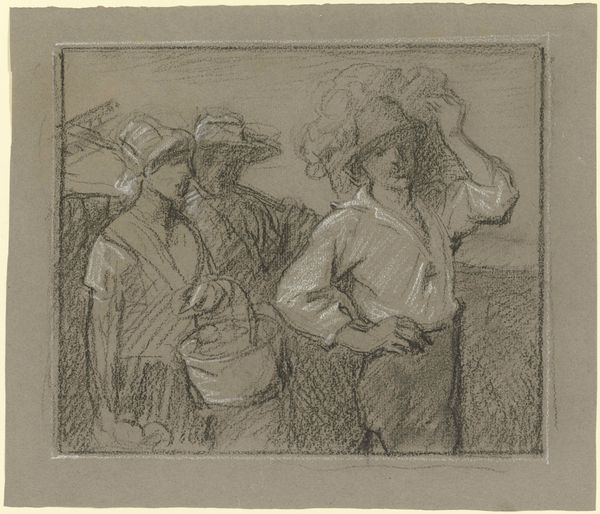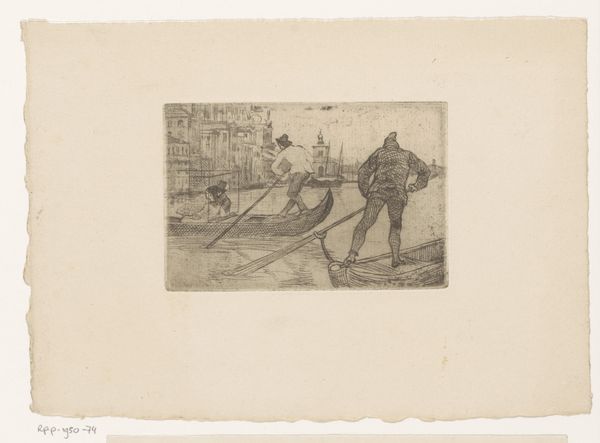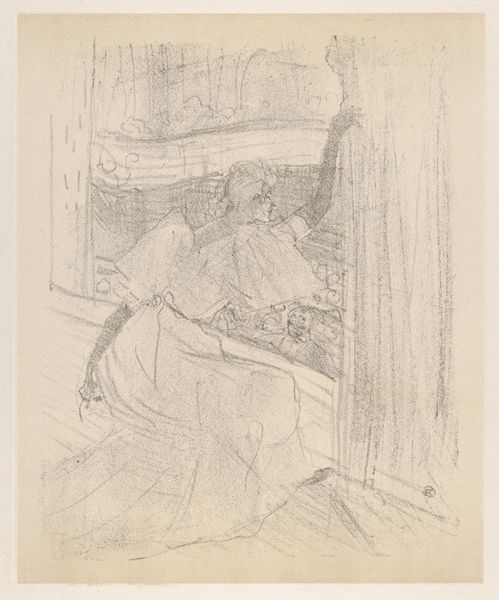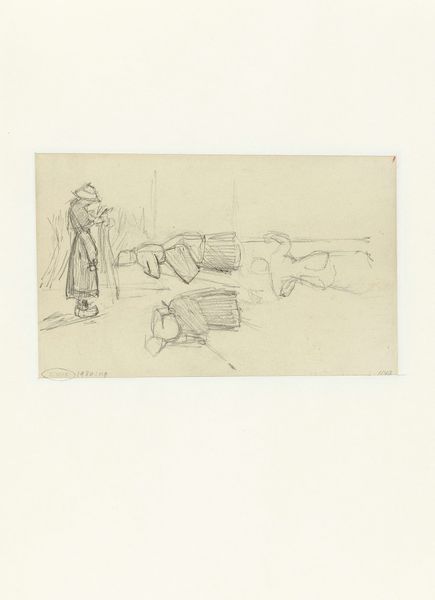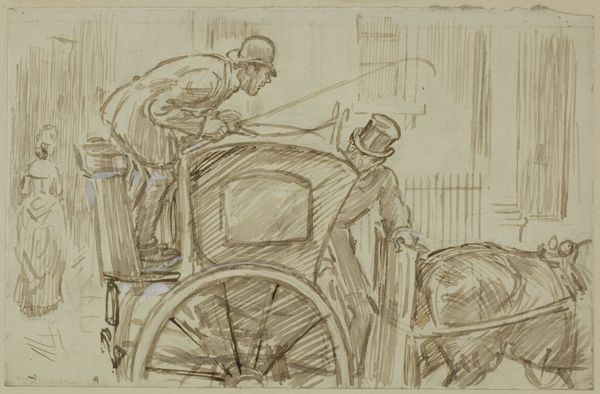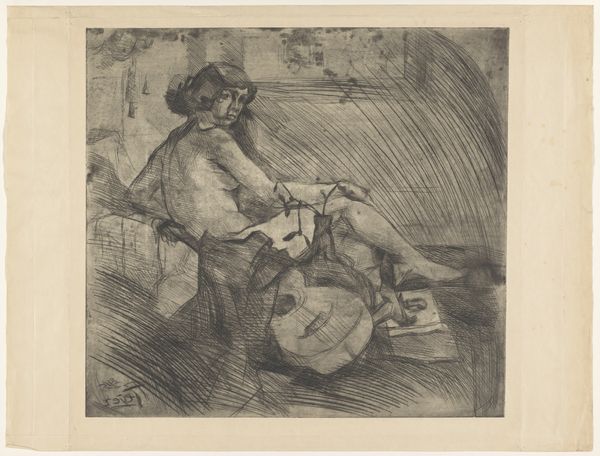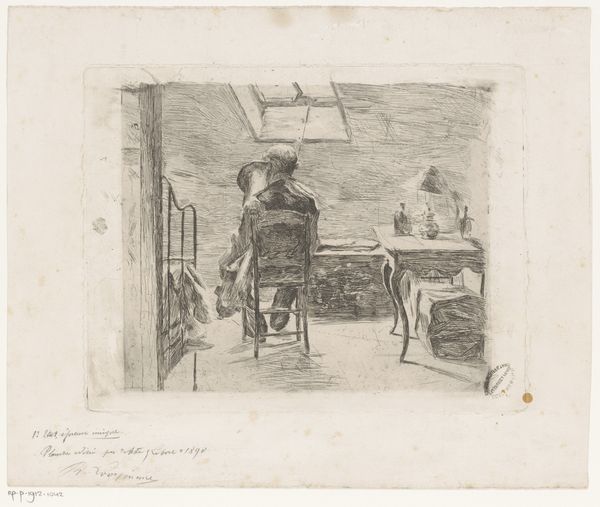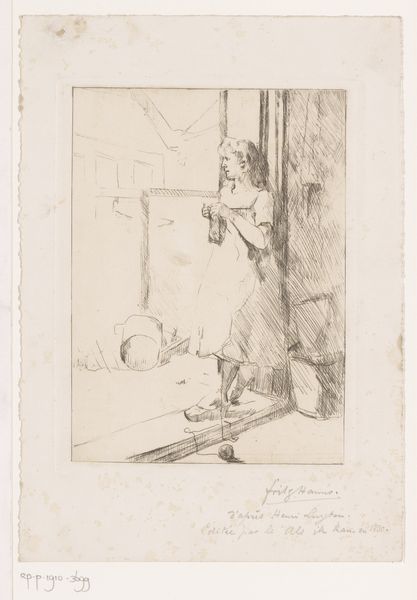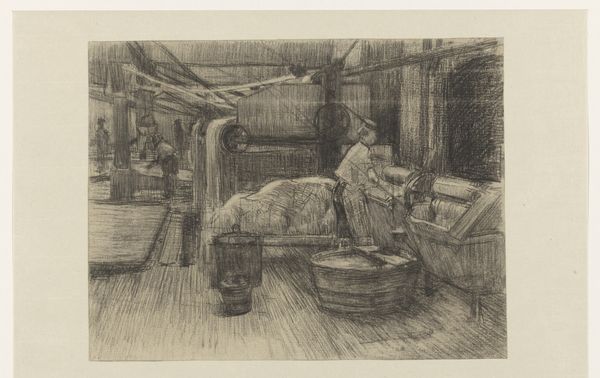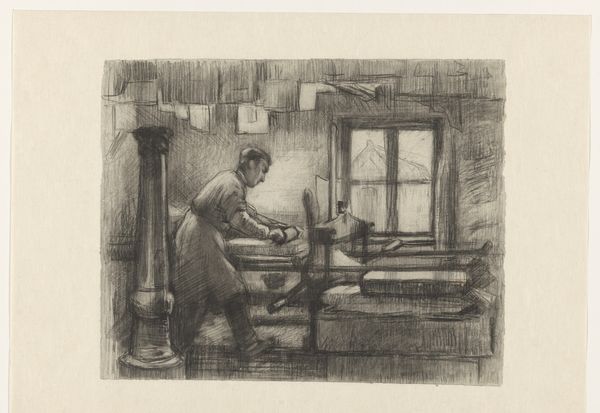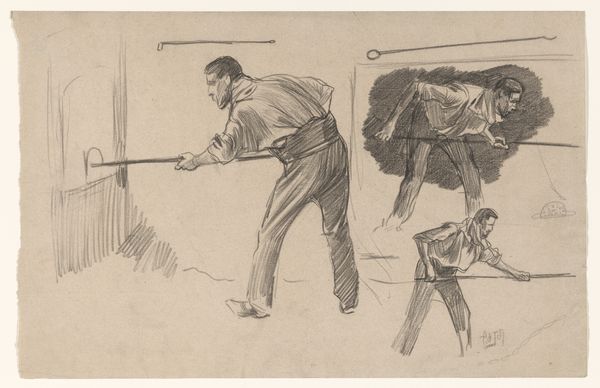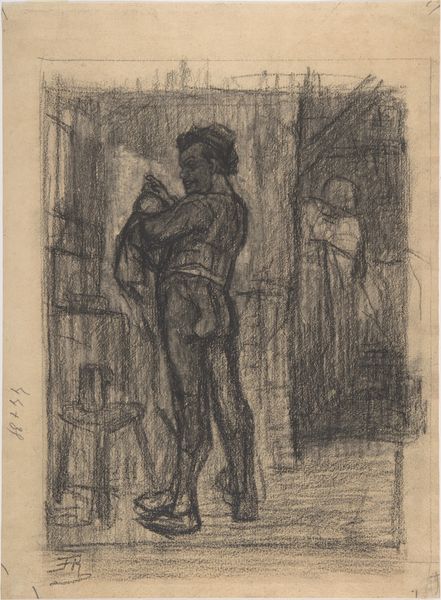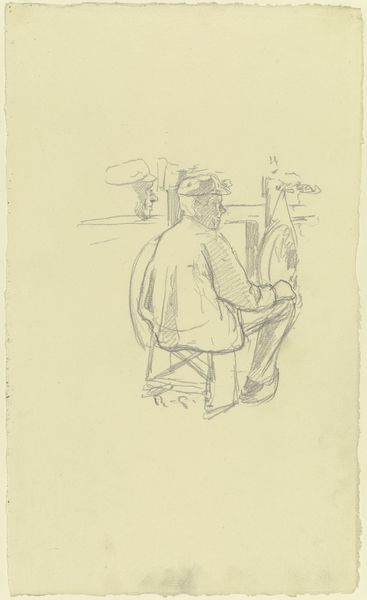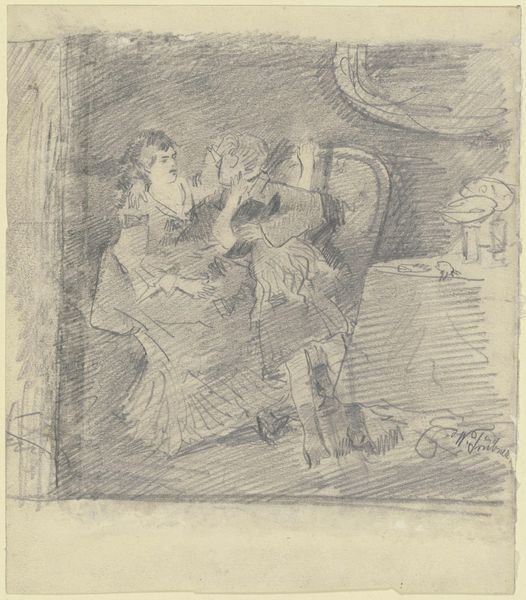
drawing, pencil, graphite
#
drawing
#
light pencil work
#
dutch-golden-age
#
pencil sketch
#
landscape
#
personal sketchbook
#
idea generation sketch
#
sketchwork
#
ink drawing experimentation
#
pen-ink sketch
#
pencil
#
graphite
#
sketchbook drawing
#
pencil work
#
genre-painting
#
sketchbook art
#
realism
Dimensions: height 351 mm, width 399 mm
Copyright: Rijks Museum: Open Domain
Anthon van Rappard made this drawing of a factory boy at work in the Netherlands, likely in the 1880s. Here, we see a young man standing in front of what is most probably a weaving loom. We can imagine the sounds of the factory, the repetitive motions, and the boy's daily grind. The Industrial Revolution brought massive social changes to the Netherlands. On the one hand, increased production and new technologies brought great wealth to some. But the same social and economic shifts that made some people rich also brought exploitation, dangerous work conditions, and child labor. It is important to consider Rappard’s intentions, his social position as a wealthy artist who painted the lives of the working class. Art historical research involves studying a wide range of sources: letters, newspapers and institutional records can provide further insight into Rappard’s place within this changing world. We can then better understand art's role in reflecting, shaping, and questioning the social order.
Comments
No comments
Be the first to comment and join the conversation on the ultimate creative platform.
